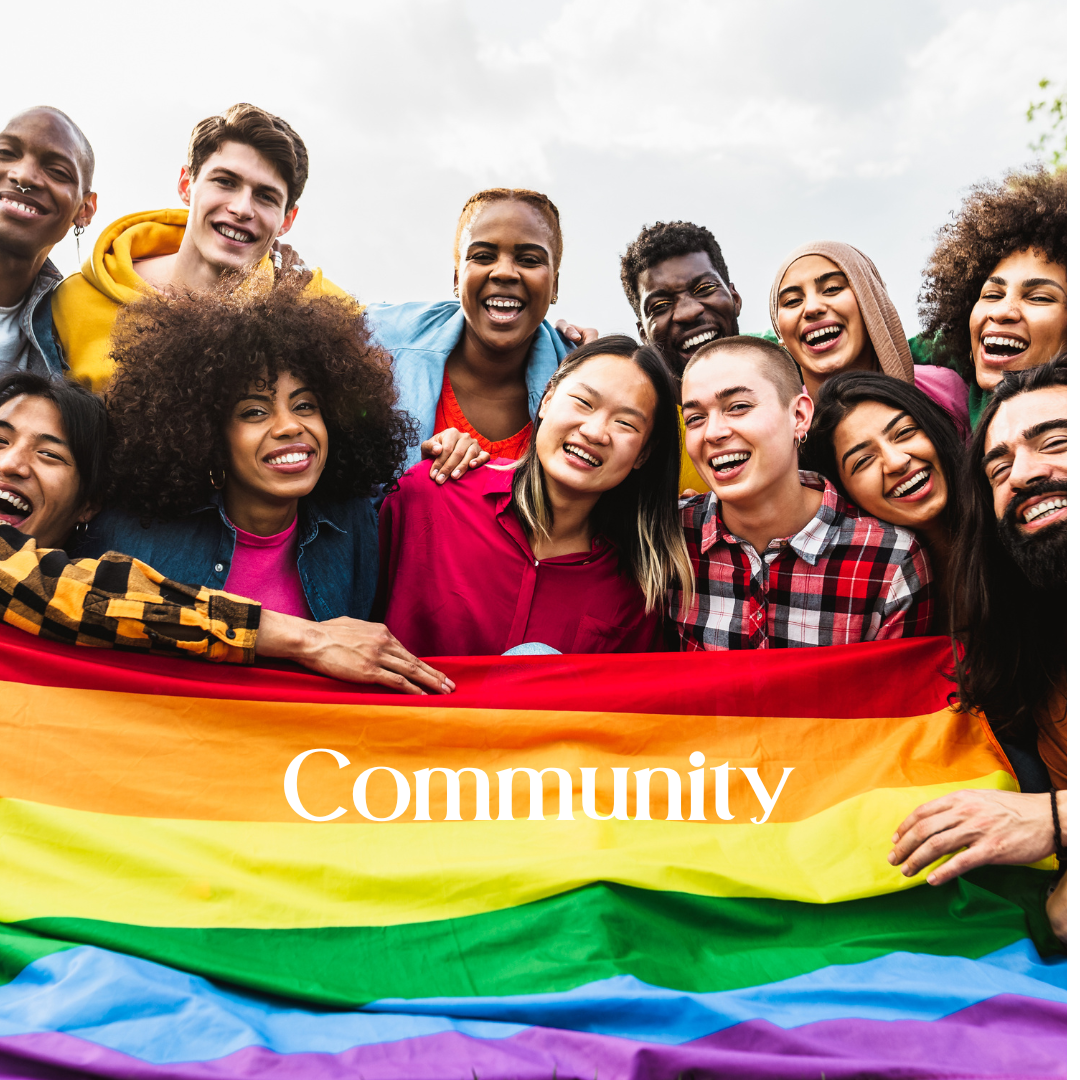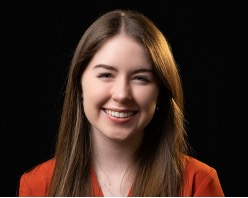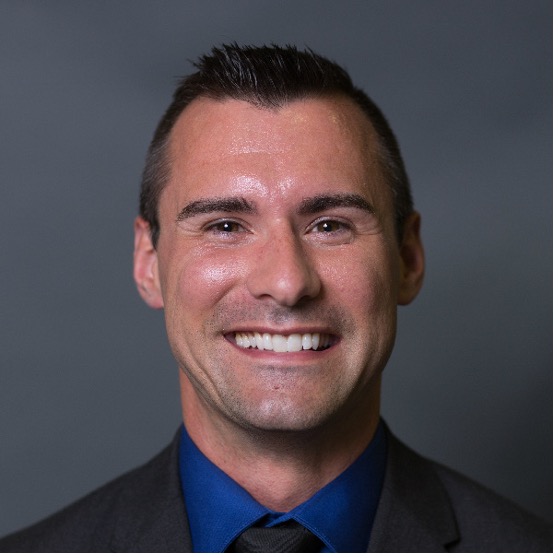|

We Could Do Better: Building a Thriving LGBTQ+ Community
As the field of LGBTQ+ affirming therapy expands, recommendations for therapists have started to shift from a focus on boosting resilience to an emphasis on helping clients thrive. Thriving as a frame for therapy is a strength-based approach that fosters a sense of belonging, passion, and purpose while moving away from deficit-focused frameworks that inadvertently reinforce negative perceptions.
Scholars recommend building LGBTQ+ community and encouraging LGBTQ+ connection as essential elements of establishing a strength-based approach that facilitates thriving. By applying these principles, counselors can better empower the LGBTQ+ community to not only endure challenges, but also to flourish.
Moving from surviving to thriving in psychological practice requires intentionality and dedication. It cuts across three domains relevant to multicultural psychology: environment, practice, and advocacy. Considerations related to each of these domains are offered here to guide counseling psychologists as they work to make their practices more LGBTQ+ empowering.
Environment
There are several strategies that can contribute to a community-empowering, LGBTQ+ affirming environment.
- From “pointing” to “activating” signals.
- Pointing signals (such as office pride flags or allyship decals on your website) are primarily visual cues of allyship. Therapists may use pointing signals to indicate support for LGBTQ+ communities, but research indicates that they come across as largely symbolic gestures. Researchers suggest that “activating” signals (regularly using correct pronouns, celebrating transition milestones) are more effective signals of support for LGBTQ+ individuals. When added to pointing signals, activating signals create an active, clear, empowering environment. Activating behaviors are differentiated from pointing behaviors by the fact that they necessitate greater action on the part of the counselor and a more concerted effort to promote community-friendly atmospheres.
- Try this: Even if you include your pronouns on your name badge, still make sure you share them with every client at intake.
- From feedback-as-outcome to feedback driven approaches.
- Research suggests feedback-informed counseling amplifies client voices and identifies treatment needs. Actively seeking feedback early and often enables counselors to tailor the counseling environment to be a more affirming space that facilitates connectedness and helps clients flourish.
- Try this: incorporate feedback questions into your intake process so that clients become accustomed to sharing their thoughts, opinions, and needs.
Practice
A dedication to building LGBTQ+ community necessitates developing a work style and training background that embraces its diverse experiences.
- From a queer lens to a “you” lens.
- Well-meaning, informed affirming therapists sometimes get used to concepts and terms like gay or gender dysphoria, and they may maintain assumptions about what people mean when they use these terms. However, scholars strongly endorse a one-size-does-not-fit-all approach to LGBTQ+ counseling as the best way to welcome the varied experiences within the LGBTQ+ community. Therapists also must remain open to discussing and understanding complex LGBTQ+ client concerns including healthcare accessibility and social injustices.
- Try this: When a client uses a basic term you assume you already understand, ask what that term means to them and how well it feels like it fits.
- From an individual focus to a community focus.
- Many clients who prematurely terminate therapy attribute the reason to desiring support beyond an individualistic approach. Choosing to provide LGBTQ+ group therapy presents a community-building alternative to those who seek a stronger sense of belonging.
- Try this: If you are not able to start a group at your practice, you can still create a referral list of support groups for your LGBTQ+ clients.
Advocacy
Becoming a therapist who supports thriving requires action beyond the four walls of the counseling room. The most effective community-builders are advocates.
- From client referral to self-referral.
- Therapists generally think of referring LGBTQ+ clients to LGBTQ+ resources, but they may not think about the importance of engaging with those resources themselves. A commitment to fostering community involves staying informed about and participating in local queer arts events, pride parades, LGBTQ+ film festivals, queer history and education workshops, LGBTQ+ social gatherings, queer book clubs, and more.
- Try this: Find one inclusive, LGBTQ+ affirming activity and sign up for it. For example, subscribe to a YouTube channel maintained by an LGBTQ+ content creator.
- From a “therapy is for you” to a “therapy is for me” mindset.
- Therapists are expert helpers who generally focus on what they can do for others. However, empowering therapy starts with self-work. Conscious self-reflection allows counselors to investigate their capacity for providing affirming LGBTQ+ counseling and the tangibility of their advocacy efforts. Counselors should examine their biases and beliefs to better connect with the LGBTQ+ community, build rapport with LGBTQ+ clients, and expand their advocacy skills.
- Try this: Think about the first time you noticed yourself being attracted to someone else. Reflect on how you felt, how you behaved, and what you thought.
Bringing it All Together
Expanding advocacy efforts, modifying the therapy environment, and adjusting counseling practices to empower the LGBTQ+ community are critical pieces of creating a vibrant community. Even if you are already implementing many of the recommendations in this article, we hope you will take a moment to reflect on the importance of your work. We hope you will remember that shifting from surviving to thriving is not just for clients, it is for affirming therapists too.

Sam Jensen (she/her) B.S. is a master’s student in the Mental Health Counseling program in the School of Community Health Sciences, Counseling and Counseling Psychology at Oklahoma State University. Sam is an advocate in the Health, Education, and Rural Empowerment (HEΔRE) Lab. Her research and advocacy focus on building resilient LGBTQ+ community spaces and optimizing affirming therapeutic practice.
 Douglas Knutson (he/him) PhD, LHSP, ABPP is an assistant professor in the School of Community Health Sciences, Counseling and Counseling Psychology at Oklahoma State University. He is a licensed health service psychologist, board certified in counseling psychology. Dr. Knutson directs the Health, Education, and Rural Empowerment (HEΔRE) Lab. Douglas Knutson (he/him) PhD, LHSP, ABPP is an assistant professor in the School of Community Health Sciences, Counseling and Counseling Psychology at Oklahoma State University. He is a licensed health service psychologist, board certified in counseling psychology. Dr. Knutson directs the Health, Education, and Rural Empowerment (HEΔRE) Lab.
|




 Douglas Knutson (he/him) PhD, LHSP, ABPP is an assistant professor in the School of Community Health Sciences, Counseling and Counseling Psychology at Oklahoma State University. He is a licensed health service psychologist, board certified in counseling psychology. Dr. Knutson directs the
Douglas Knutson (he/him) PhD, LHSP, ABPP is an assistant professor in the School of Community Health Sciences, Counseling and Counseling Psychology at Oklahoma State University. He is a licensed health service psychologist, board certified in counseling psychology. Dr. Knutson directs the